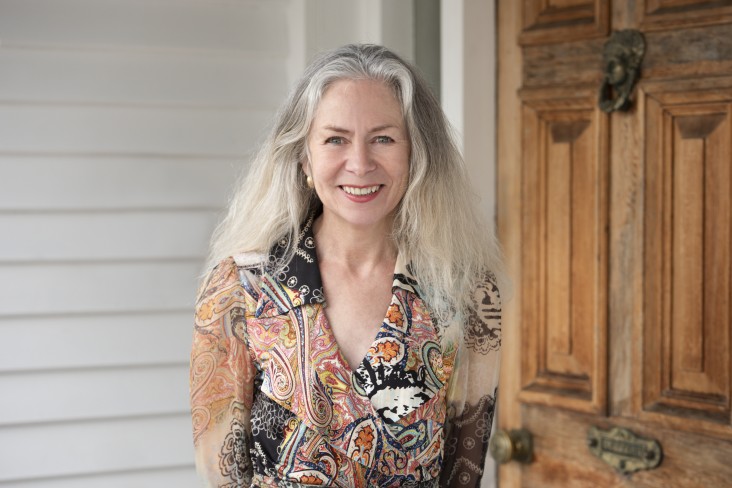A relationship breakdown can be the most testing and heart-wrenching event you’ll face across your entire lifetime – especially if there are children involved.
In my 30-plus years practising law, with a big focus on family issues, I’ve witnessed it all – parting couples I’ve greatly admired for their maturity and fairness in the face of unspeakable grief, fear and, routinely, anger, to cases where one party – or sometimes both – play out every nasty vengeance they can think of to inflict maximum pain and suffering, and pretty much every scenario in between.
Poisonous seeds sown in the immediate aftermath of a separation sometimes go on to sprout months, and sometimes years, of ill will and dysfunction – all of which could have been avoided, or at least mitigated, with some timely intervention, support and reality checks. Often, by the time my advice is sought, the parties have become polarised and the resulting damage is mounting.
I don’t pretend to have a magic wand or sure-fire ways to fast-track healing. What I do have is decades of insight, having witnessed dozens upon dozens of families navigate separation, and many years of professional training and education in what researchers and other experts tell us is important in the wake of a relationship break-up, especially for the children.
Pre-separation, it’s likely impossible to imagine any time that your children could possibly come anything but front, back, centre, left and right in your mind. However, even the best Mums and Dads can have their parenting judgment tested and, sometimes, clouded in the aftermath of a separation. If I had just three pieces of advice to pass on to separating parents, categorically they are: never forget the children; you have a duty to your children to protect them from any, and all, animosity, and NEVER use them in ANY way as pawns or leverage in your separation.
While there are many reasons and dynamics around separations, the feelings of, and risks to, affected children tend to be very similar irrespective of their background; hence, the guidelines for doing right by sons and daughters is pretty much universal.
Children need reassurance that they are loved by both of their parents, and to have it made clear that the fact that their parents are separating does not at all alter how Mum and Dad feel about them. Children often feel abandoned, or that they have in some way caused their parents’ breakup. Bear in mind, even if children don’t communicate their anxieties, that doesn’t mean that they’re not deeply upset and worried and that those feelings are not very real to them. It’s absolutely critical children do not in any way feel responsible for what is going on between their parents.
On separation, some parents fall into the trap of using the children, often without realising the damage they’re doing: “You left me, so you don’t deserve to see the children”, “You’re not paying me enough money, so you’re not going to have any time with the children”, “You’re not doing what I want, so I’m going to ignore our children and blame you”, ”I am going to make sure the children know what you are really like” and, alas, so on.
Introducing a new partner
Even the most peaceable break-up can implode when a parent introduces their new partner to the children. I suggest caution. If the separation is still raw, children are still adjusting to life away from the nuclear family they knew, and the many changes and emotions that carries, without having to cope with one or both of their parents’ new love interests.
A third party’s involvement with children often hits a raw nerve with the other parent, too. It sounds simple, but, no matter how loved up you might be feeling, always do a “shoe on the other foot” test – if you were your children or your ex, how would you feel? Have relationships by all means, but just tread carefully and sensitively when it comes to the timing and way you blend any newcomer into your children’s lives.
Few separations go completely smoothly and can be catastrophic for those tumbling through the fallout. Please consider counselling or a Government-funded Parenting Through Separation course. Even if it’s just to reinforce what you already know. It is not a time to go it alone. Having a calm, knowledgeable sounding board navigating you over and around the road bumps can make the difference between moving forward and faltering.
Courting a formal decision
While I always try and encourage clients to keep the lines of communication open with their ex, the fact is sometimes that’s just not the way it turns out, and any hopes of mutually-agreed post-separation agreements fly right out the window. What you mightn’t be aware of is that the Family Court has been through huge change in the past couple of years and, unless there are exceptional circumstances, any disputes will not be immediately heard. Instead, if you can’t agree on what’s best for your children, you’ll be referred, in the first instance, to Family Dispute Resolution – mediation, essentially. Note, unless you qualify for a waiver, there is a cost.
From years of experience, I can tell you that often the most successful outcomes result from plans made by parties together. Children cope more easily with separation when they know their parents are working together to resolve issues in a way that’s in their best interests. And, just by way of reality check, regardless of the outcome, it’s not uncommon to see both sides deeply unhappy with judge-imposed arrangements when cases go to court. No-one “wins”. To check out the Family Court processes, and any entitlements you might have to financial assistance, take a look at the dedicated Ministry of Justice website.
Remember, too, whatever way you reach your agreement, you can both decide to formalise matters with a “consent order”, which is registered with the Family Court, and can be enforced should either party renege.
Research has shown, in terms of outcomes at the two-year mark, children exposed to ongoing conflict following parental separation fare worse than those whose parents had died. Sobering, isn’t it?

